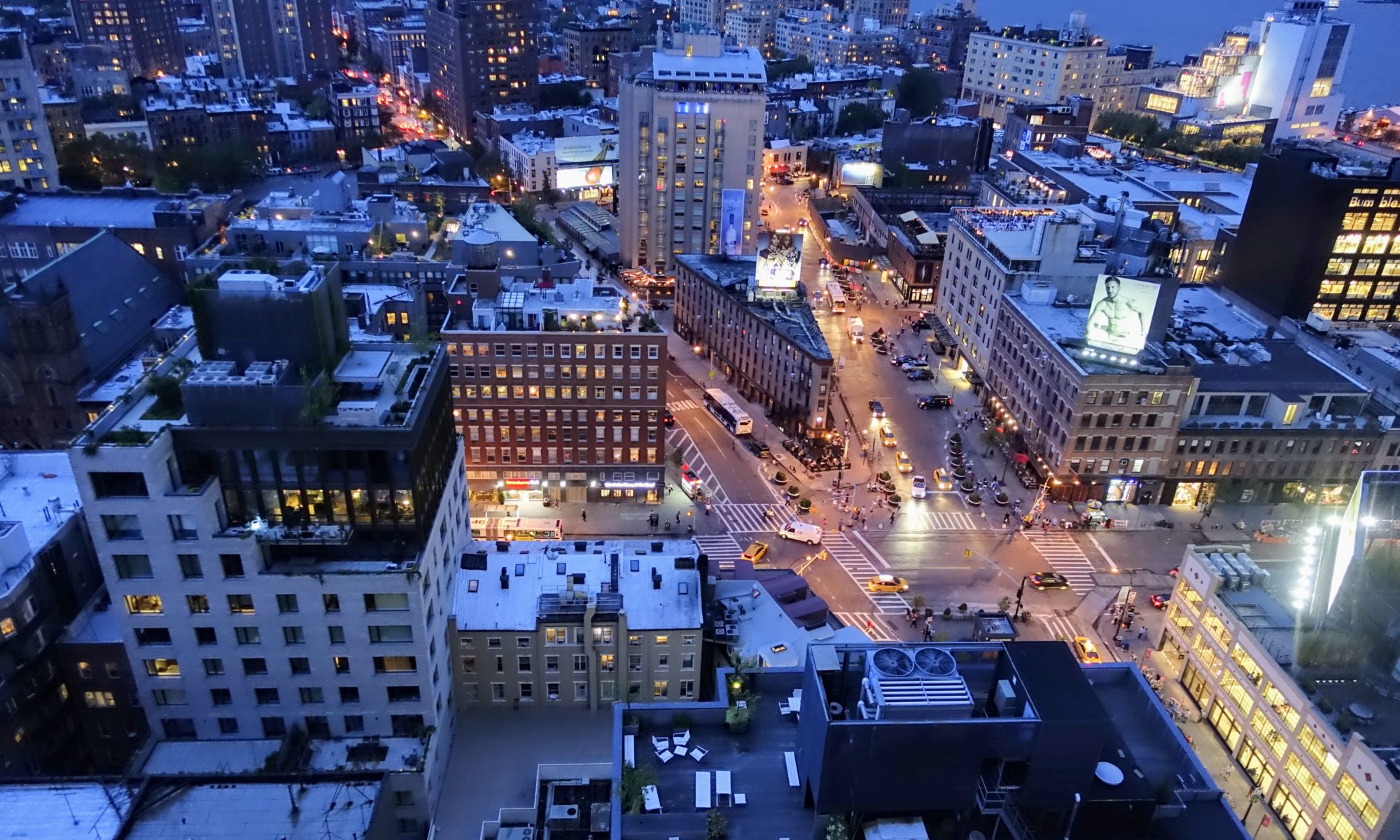The other night at a team dinner at the Four Seasons buffet, I had a Proustian moment at the charcuterie table. The prosciutto and brie — rarities in Seoul — brought me back to nights at The Tippler, under Chelsea Market, where we would go to say goodbye to someone who was leaving our team at Google. It’s where I had my goodbye drinks.
It’ll be two years tomorrow. I don’t think that much about my New York life these days, but there are moments.
As I write this, I’m sitting on my veranda, watching the rain come down in sheets over the nearby apartment towers and Umyeon Mountain as the breeze plays with the leaves of my little hallabong tree out on the balcony. My life is different and not different. I work as a writer at a giant tech company, and I live in an apartment in a nice part of town.
Different tech company, different town.
Leaving New York
It took me a long time to leave New York. It’s hard to leave because it fools you into thinking that life outside of New York is both impractical and uncivilized. My grandfather, before he decamped for California, expressed a worry that he might not be able to buy duffel bags there, as if sack-and-zipper technology were exclusively the province of Canal Street artisans. And there’s a reflexive sense that being in New York makes you cultured.
It turns out, though, that there are ways to be cultured that don’t involve sucking down a grease triangle on a paper plate before riding the L train a hundred years to see your friend’s photos tacked to a Bushwick wall and pretending to have visited the latest Whitney show over plastic cups of cheap white wine. After I left New York, I discovered that LA has really good art museums now. In Bangkok, there are motorcycle gangs that look like American motorcycle gangs and play heavy metal on the street to raise money for charity. Up in Khon Kaen, the college kids play some mean ska, and they do it for hours nonstop. Yangon has a fascinating little art scene emerging in the crumbling but still gorgeous colonial buildings downtown, and there are some good galleries in Hanoi too. They play excellent Latin music at Carmen Bar in Saigon, and late in the evening they turn to French pop from the sixties that the older folks still remember. I saw Dengue Fever fight their way through a collapsing sounds system to play the most rock-and-roll show ever in Phnom Penh. Hanoi has good art galleries. In Hue I ate a sauteed lemongrass bird’s nest that was like nothing I’ve had before or since, and in Singapore there was a dessert made from artisanal pop rocks. Laos makes the loveliest textiles you’ve ever seen, and you can take a weaving class in Luang Prabang, then finish your day with exquisite French cuisine.
Seeing Seoul
 Seoul is deceptive in more or less the opposite way from New York. Seoul convinces you that everything is normal and there’s nothing to see. The standard tourist circuit includes some so-so palaces that were all rebuilt in the last 50 years anyway, plus a bunch of shopping districts where everyone’s wearing Western clothes and drinking Starbucks coffee. As a friend put it recently, “I was expecting Seoul to be more Asian.” The beige apartment towers, the red-brick residential buildings, the glass-and-stone commercial strips have an almost militant blandness, and the chain stores repeat like a canvas backdrop loop on a crank. Even the city slogan, “I.SEOUL.U,” manages to convey nothing, while its bizarreness distracts you from the actual city.
Seoul is deceptive in more or less the opposite way from New York. Seoul convinces you that everything is normal and there’s nothing to see. The standard tourist circuit includes some so-so palaces that were all rebuilt in the last 50 years anyway, plus a bunch of shopping districts where everyone’s wearing Western clothes and drinking Starbucks coffee. As a friend put it recently, “I was expecting Seoul to be more Asian.” The beige apartment towers, the red-brick residential buildings, the glass-and-stone commercial strips have an almost militant blandness, and the chain stores repeat like a canvas backdrop loop on a crank. Even the city slogan, “I.SEOUL.U,” manages to convey nothing, while its bizarreness distracts you from the actual city.
But for all that, Seoul is beguiling. It’s hard to explain. A New York fashion designer I met here told me that the city brought her back to life, that there was this one elegant building that caught her imagination with its elegant S-curve lighted up at night. That something about the people here touched her. I know what she means, but I don’t know how to convey it to anyone who hasn’t been here.
And now it’s home. I’ve spent a lot of nights in a lot of places in the last two years, but more of them here in this apartment than anywhere else. It’s been quite an adventure, and it’s still just beginning.

